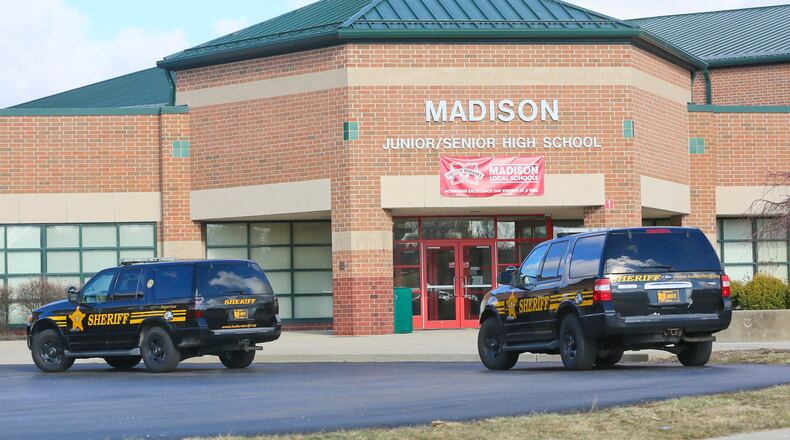Pater ruled teachers and other staff are not peace officers and therefore do not require police levels of training. The appeals court disagreed and ordered the school district to stop arming teachers without that much more involved required training.
RELATED: Madison Schools may appeal to high court over gun training decision
The appeals court ruled the district cannot circumvent state law in March.
“The express language of the statute does not suggest an intention to allow teachers or staff to carry a firearm while on duty with less training than that indicated in the statute,” Judge Robert Ringland wrote for the court. “Rather, the plain language of the statute reveals that a board of education may only employ such persons if they have received significant training or have more than 20 years of experience.”
The district filed the appeal to the high court Thursday and several other school districts and the Ohio Attorney General’s Office have filed briefs in support. They said “it would be difficult to argue that this case does not present issues of public or great general interest.”
“This is more than a picayune squabble about how much training should be required when a school district exercises its right under the authorizing statute,” attorneys for the district wrote. “As a practical matter, this decision eliminates the ability of a local board of education to decide that the best way to protect students and staff from a hostile actor is by allowing some staff to carry concealed weapons on school grounds.”
The court challenge came in response to a gun policy that was passed after a 2016 shooting at Madison Jr./Sr. High School, where a student injured four of his classmates.
Erin Gabbard and few other parents sued the district in September 2018 seeking an injunction blocking the district from arming teachers and other staff without the training required of law enforcement officials — 728 hours versus the 26 hours the school has in its policy — and a court order requiring disclosure of policies and procedures for arming staff.
School Superintendent Lisa Tuttle-Huff said the issue is crucial not just to Madison, hence the high court appeal.
“While this policy has received a substantial amount of attention, it is just one of the many steps that the district has taken to ensure student safety. With that in mind, the board has decided to appeal the split Twelfth District decision to the Ohio Supreme Court,” she said. “We believe that this case impacts not just Madison, but all of the districts across Ohio that have made similar decisions on how best to provide for the safety of their students and staff. This policy is important in allowing us as a local board of education to decide how best to protect our students.”
Other school districts, 11 of them, agreed and filed a brief supporting Madison. Those districts all passed similar concealed carry policies, a couple as long ago as 2013, right after the Sandy Hook Elementary School shooting in Connecticut.
In addition to arguing Gabbard’s attorneys and the 12th District Court misinterpreted laws governing armed staff, Attorney General Dave Yost’s staff said there are practical reasons the decision must be overturned. He said it would cost the district $7,265 to send a staffer through peace officer training at Butler Tech. Plus the program is eight hours a day, five days a week, it would take a little over eighteen weeks to complete.
“The reality is that few if any teachers or school administrators can train to become police officers while maintaining their day jobs,” the brief reads. “Thus, as a practical matter, the Twelfth District’s erroneous decision strips schools of an effective means they have to defend schoolchildren from a school shooting.”
The parents are represented by Rachel Bloomekatz, a Columbus-based attorney, and Everytown Law, the litigation arm of Everytown for Gun Safety. They maintain the 12th District was correct.
“After carefully considering the arguments from both sides, the appellate court correctly recognized that the district’s program failed to meet the state’s clear requirements,” Bloomekatz told the Journal-News.
About the Author
